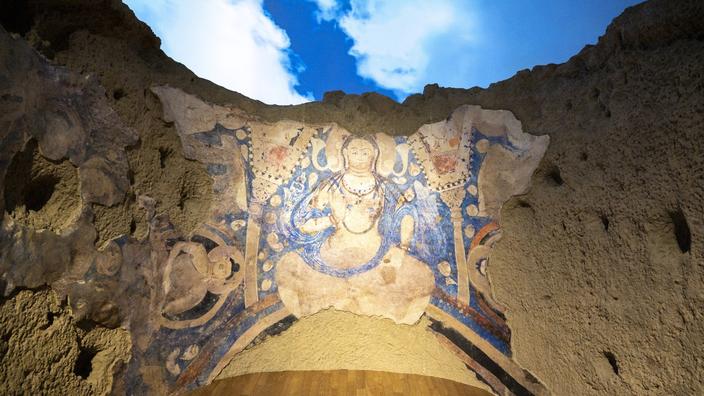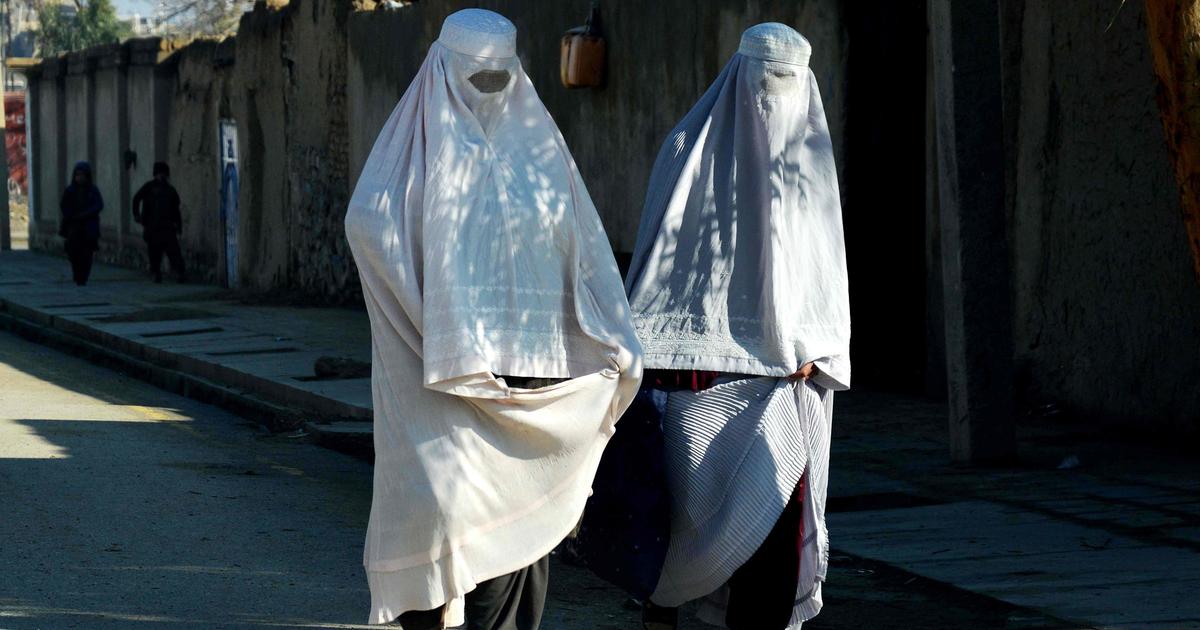“
Any destruction is in vain since it is now possible to reproduce the works ad infinitum.
This is the message these Japanese researchers wanted to convey by reproducing identically a Buddhist fresco destroyed in 2001 by the Taliban in the Bamiyan valley in Afghanistan.
In order to preserve the spirit of the work, they used a mixture of traditional and digital techniques.
Six meters long and three meters high, this fresco depicted a blue Bodhisattva, a disciple of Buddha, who delays his accession to nirvana in order to remain among humans to help them.
A technique at the cutting edge of technology
Of this crime against world heritage perpetrated by the Taliban in 2001, only one fragment remains of this rock painting from the 7th century, pulverized with explosives. This is why the team of Takashi Inoue, professor specializing in Eurasian cultural heritage, created a digital model of its surface using around 100 photos of the original fresco taken by Japanese archaeologists before its destruction. These data were entered in a machine so as to engrave the exact shape in a block of polystyrene. A team of artists then took the hand and completed the copy using traditional deep blue paint.
“Today we have the capacity to give shape to works and pass on their spirit to new generations.
Any destruction is in vain, let's preserve the heritage of humanity together
”, rejoices Takashi Inoue.
Read also Camouflet for Moscow: Dutch justice orders the return to Ukraine of archaeological treasures from Crimea
Japan has long been involved in the preservation of the archaeological and cultural heritage of the Bamiyan Valley. This is considered to be one of the cradles of Japanese Buddhism. Kosaku Maeda, Japanese historian and co-director of the fresco reproduction team says that "
with current reconstruction techniques, all destruction is meaningless because we can recreate the works almost endlessly and that is our message. .
"The dream of the historian would be to build a"
museum of peace
"in Afghanistan, in this valley victim of the Taliban and to exhibit the fresco there since"
a nation remains alive when its culture remains alive
", affirms t -he.
"
Super Clone
" is the term used by the reproduction team at Tokyo University of the Arts to describe this full-size copy.
After three years of hard work, it was exhibited at Tokyo University of the Arts during September and October, even as the Taliban regained power in Afghanistan.


/cloudfront-eu-central-1.images.arcpublishing.com/prisa/KA3LQ5ZEAFEQXOIZXJEEVDUZUQ.jpg)






